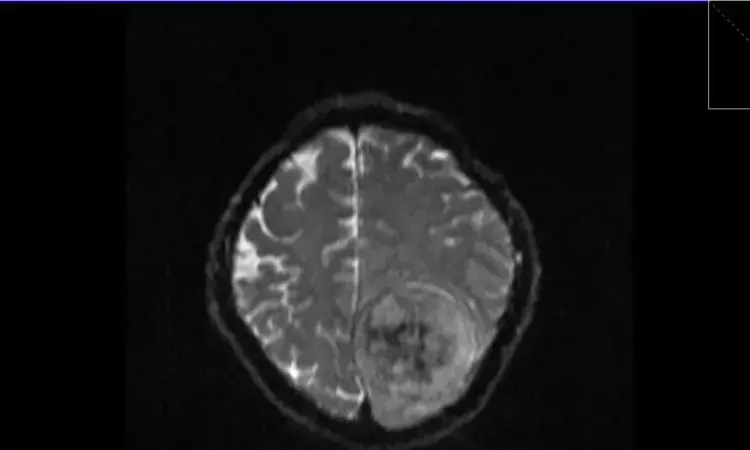- Home
- Medical news & Guidelines
- Anesthesiology
- Cardiology and CTVS
- Critical Care
- Dentistry
- Dermatology
- Diabetes and Endocrinology
- ENT
- Gastroenterology
- Medicine
- Nephrology
- Neurology
- Obstretics-Gynaecology
- Oncology
- Ophthalmology
- Orthopaedics
- Pediatrics-Neonatology
- Psychiatry
- Pulmonology
- Radiology
- Surgery
- Urology
- Laboratory Medicine
- Diet
- Nursing
- Paramedical
- Physiotherapy
- Health news
- Fact Check
- Bone Health Fact Check
- Brain Health Fact Check
- Cancer Related Fact Check
- Child Care Fact Check
- Dental and oral health fact check
- Diabetes and metabolic health fact check
- Diet and Nutrition Fact Check
- Eye and ENT Care Fact Check
- Fitness fact check
- Gut health fact check
- Heart health fact check
- Kidney health fact check
- Medical education fact check
- Men's health fact check
- Respiratory fact check
- Skin and hair care fact check
- Vaccine and Immunization fact check
- Women's health fact check
- AYUSH
- State News
- Andaman and Nicobar Islands
- Andhra Pradesh
- Arunachal Pradesh
- Assam
- Bihar
- Chandigarh
- Chattisgarh
- Dadra and Nagar Haveli
- Daman and Diu
- Delhi
- Goa
- Gujarat
- Haryana
- Himachal Pradesh
- Jammu & Kashmir
- Jharkhand
- Karnataka
- Kerala
- Ladakh
- Lakshadweep
- Madhya Pradesh
- Maharashtra
- Manipur
- Meghalaya
- Mizoram
- Nagaland
- Odisha
- Puducherry
- Punjab
- Rajasthan
- Sikkim
- Tamil Nadu
- Telangana
- Tripura
- Uttar Pradesh
- Uttrakhand
- West Bengal
- Medical Education
- Industry
Advancements in MR Imaging: Study Explores Lower Gadolinium Doses for Meningioma Diagnosis

Canada: In medical imaging, a cutting-edge study is reshaping the landscape of meningioma diagnosis by exploring lower gadolinium doses for magnetic resonance (MR) imaging. Published in the prestigious American Journal of Neuroradiology, the research investigates the feasibility and efficacy of reducing gadolinium contrast agent doses without compromising diagnostic accuracy.
The study found that reducing the gadolinium dose to 62% of the standard level still effectively distinguishes meningiomas from surrounding tissues. However, further reducing it to 25% substantially compromises the ability to distinguish the tumor from adjacent structures and is, therefore, not advisable.
Conventionally, gadolinium-based contrast agents have played a pivotal role in enhancing the visualization and characterization of meningiomas on MR imaging. However, concerns regarding gadolinium retention in the body and associated adverse effects have spurred efforts to optimize contrast agent dosing while maintaining diagnostic utility.
At the standard gadolinium dose, most meningiomas show avid contrast enhancement indicating that a smaller dose administration may be feasible. Therefore, Tshea Dowers, University of Toronto, Toronto, Ontario, Canada, and colleagues aimed to evaluate the impact of a lower gadolinium dose on the differentiation between meningiomas and adjacent intracranial tissues.
The study included 108 patients with presumed or confirmed meningiomas who underwent brain MRI at multiple gadolinium doses. Based on the gadolinium dose administered, the MRI of the patients was categorized into three groups: Micro (approximately 25% of the standard dose), Low (approximately 62% of the standard dose), and Standard dose.
To evaluate tumor differentiation from the cortex and the dural venous sinus, the researchers performed multi-reader qualitative visual assessment and quantitative relative signal differences calculations. The relative signal differences for each dose were analyzed using ANOVA for quantitative assessment and NcNemar for qualitative assessment. In addition, non-inferiority testing was used to compare the Low and Micro doses to the Standard dose.
The researchers reported the following findings:
- Decreasing the gadolinium dose to a Low dose or a Microdose resulted in a statistically significant decrease in the signal difference between the tumor and the adjacent brain tissues.
- On visual assessment, the Low dose was non-inferior to the Standard dose.
- The proportion of cases with suboptimal differentiation was significantly higher for the Microdose than for the Standard dose, both for the differentiation between the tumor and the cortex and the differentiation between tumor and sinus.
Even so, decreasing the gadolinium dose to 62% of the standard level still allowed for sufficient visual delineation of meningiomas from surrounding healthy tissues, according to the team, although "further decreasing to 25% compromised the ability to distinguish the tumor from adjacent structures and is, therefore, not advisable," the researchers concluded.
As the scientific community awaits further validation and replication of these findings, anticipation mounts for the widespread adoption of lower gadolinium doses in meningioma imaging protocols. Armed with the knowledge gleaned from this pioneering research, radiologists and neurosurgeons stand poised to enhance diagnostic precision, improve patient outcomes, and advance the field of neuroimaging.
Reference:
Comparative Evaluation of Lower Gadolinium Doses for MR Imaging of Meningiomas: How Low Can We Go? Tshea Dowers, Ali Helmi, Achire N. Mbanwi, Paula Alcaide-Leon. American Journal of Neuroradiology Jun 2024, ajnr.A8375; DOI: 10.3174/ajnr.A8375.
Dr Kamal Kant Kohli-MBBS, DTCD- a chest specialist with more than 30 years of practice and a flair for writing clinical articles, Dr Kamal Kant Kohli joined Medical Dialogues as a Chief Editor of Medical News. Besides writing articles, as an editor, he proofreads and verifies all the medical content published on Medical Dialogues including those coming from journals, studies,medical conferences,guidelines etc. Email: drkohli@medicaldialogues.in. Contact no. 011-43720751


